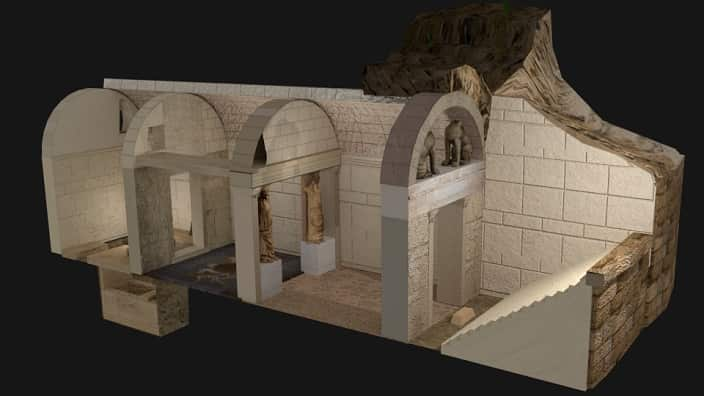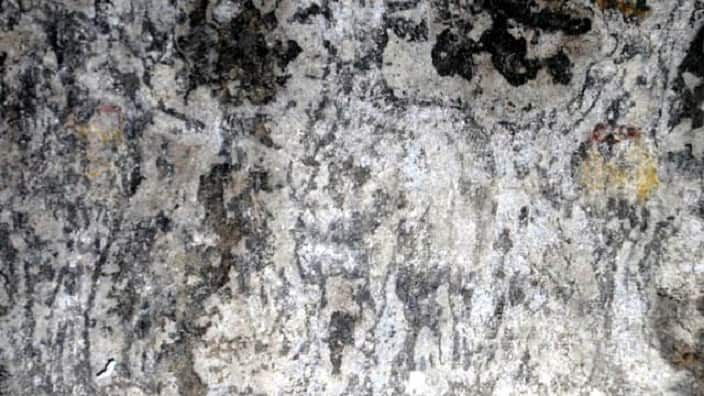Historian British Andrew Chugg was recently in Australia for a series of lectures on the findings of the Amphipolis tomb and he told SBS Greek that the tomb has confidently dateable to the last quarter of the 4th century BC, just after the death of Alexander the Great.
The "Kasta Tomb", also known as the "Amphipolis Tomb" is an ancient Macedonian tomb that was discovered inside the Kasta mound near the area of ancient Amphipolis, 100 km east of Thessaloniki in 2012.
"There is some evidence on who the occupant might have been and I have strongly advocated the idea that the tomb belongs to Alexander’s mother, Olympias. And this is important because that would mean that we could get the maternal DNA of Alexander the Great from the bones which have not been cremated" he says.
Mr Chuggs told SBS Greek that there are a couple of Alexander's close relatives, for instance, his father and his son, whose remains have been found in Vergina but they both had been cremated and there is practically zero chance of getting any DNA from them.
The first excavations at the Amphipolis mound in 1964 led to the exposure of the perimeter wall, and further excavations in the 1970s uncovered many other ancient remains. The recently discovered tomb is dated to the last quarter of the 4th century B.C.
The excavation team, based on findings unearthed at the site, argued that the tomb was a memorial dedicated to the close friend of Alexander the Great, Hephaestion. In this extensively updated and extended account of Alexander’s adventures in death, Andrew Chugg lays bare the forgotten secrets of one of the greatest mysteries bequeathed to us by the ancient world. His probing new perspective will surely fascinate any reader with a sense of curiosity about the past.
In this extensively updated and extended account of Alexander’s adventures in death, Andrew Chugg lays bare the forgotten secrets of one of the greatest mysteries bequeathed to us by the ancient world. His probing new perspective will surely fascinate any reader with a sense of curiosity about the past.

Amphipolis tomb 3D image Source: Wikipedia
It remains significantly possible that the fate of Alexander’s tomb will turn out to be the greatest archaeological story of the 21st century, for nobody has yet been able to refute the historian’s novel suggestion that the body was stolen from Alexandria in AD 828 and now in Venice may have acquired a false identity at the time that paganism was outlawed by the Emperor of Rome in the 4th century AD. Mr Chugg presented a review of the date, design, and decoration of the Amphipolis Tomb, the on-going discussion of the inscriptions associated with the complex and the analysis of the several skeletons and other bone fragments unearthed in the main grave.
Mr Chugg presented a review of the date, design, and decoration of the Amphipolis Tomb, the on-going discussion of the inscriptions associated with the complex and the analysis of the several skeletons and other bone fragments unearthed in the main grave.

Icons of humans and animals Source: Wikipedia
He recently completed a project to reconstruct the highly influential account of Alexander’s reign by Cleitarchus, which was written in Alexandria in the second quarter of the third century BC, but which has been lost since the time of the Roman Empire. The entire reconstruction was published in a single 700-page volume in 2015.




